
|
|
In Memory's Eye
(Part 6) Honourable Members Over the decades Stanley Knowles (Winnipeg North Centre) became known as "Mr. Parliament" to friends colleagues, fellow workers in every nook and cranny of Parliament Hill, members of the media, and the public at large. Much was written about him while he lived, and he will continue to be a reference point for decades to come for all who write about Canadian politics. His compendium of papers, contained in at least thirteen filing cabinets which he donated to the National Archives, is a treasure trove that no future historian should overlook, no matter what the subject of inquiry may be. So well known did he become as an advocate of lowly paid pensioners and all who suffered the ills of deprivation and suffering, lack of medical care, and the indifference of the affluent, that he received correspondence from every region of the country, not just from his own constituency, and became a national one-man social reformer. His ceaseless prodding of governments led to many advances in health and welfare programs. And he achieved this without histrionics. Stanley Knowles was a low toned speaker with just the hint of rasp in his voice. He was a joy to report. He spoke in sentences that needed no emendation. The words flowed into the shorthand script, and from there were dictated smoothly to an amanuensis whose keyboard skills tapped them into typewritten pages, free from error, and thence to final appearance in the printed pages of Hansard. Strangely, I came to know of him first by reputation. He wasn't even a Member of Parliament then. He had been a member from 1941 to 1958, and had lost his seat in the 1958 General Election. But even in his absence he was often referred to, and with affection, by members of the Hansard staff. After he won re-election in 1962, from then until 1994 I came to know the man. As a daily visitor to the Hansard office during the weeks, months, and years that Parliament was in session, he knew us by our first names, and in some way was regarded as a member of the family. "Was Mr. Knowles in today?" "No, he wasn't." "He wasn't in the House either. I hope he isn't sick." More than likely he was off on some official duty. As Chancellor of Brandon University he took his role seriously, attending Convocations and Conferrings even though this meant missing attendance in his beloved Commons. As the years rolled by we established a special bond. He discovered I had started out life as a printer, in fact grew up over a printing office, and from then on we shared the kinship that only the printing fraternity can know. As old printers we had much in common. Hot metal was in our blood. As I write this I have beside me two pages of a printing manual "Compiled and Printed by Stanley H. Knowles" when he attended the Manual Arts High School, Printing Department, in Los Angeles in 1922. One section is headed "Linotype Faces-One-line Specimens". Stanley showed me his and it was but fair that I showed him mine, "Hints to Linotype Learners"--published for the benefit of students only-by Linotype & Machinery Limited, 21 John Street, London, W.C.1. We talked the same language. We had each been splashed by molten metal at one time or another. We had handled newly cast metal slugs with fingers accustomed to their high heat, and passed them on to unsuspecting visitors who invariable yelped and dropped them. We could set type from case. I could go on and on. Yes, Stanley Knowles had been born an American, in Los Angeles, California, in 1908, and did not come to Canada until he was sixteen years old, in 1924. The sum total of his life in Canada, in particular his life in Parliament, has not yet appeared in a definitive biography. It merits handling by critical, competent, and kindly hands. In the later years of his life he suffered a severe illness from which he made a valiant recovery, though left with "only half a brain" as he himself joked. If others were only half as smart as Stanley was with his half a brain, there would be more clever people in Parliament. He was forever grateful to Prime Minister Trudeau who was instrumental in having him appointed an Honorary Officer of the House of Commons in 1984 on his retirement from active politics. Such an honorary appointment had been granted previous retirees who regarded it as just a formal compliment. Not Stanley. For years, at Question Period he occupied a special chair at the Clerk's Table in the House he loved so well. "Pierre gave me a new life, a reason for going on," he told me on one of his daily visits to Hansard. Stanley loved to talk about life in Parliament, reeling off story after story about events and people he had personal knowledge of, some even then almost gone from human memory. From him I learned much. He carried his printers' union card with him for life until the day came when, he became one with his fellows summed up in the saying: "Old printers never die. They just press on…" A copy of the Manual Arts Weekly dated December 4, 1923, published in Los Angeles, also lies beside me. It still makes lively reading eighty years after a young Stanley Knowles first worked on it.
There were the traditionalists, long accustomed to the Commons as a man's world, and there were those seeking to gain the long-sought recognition that women deserved equal status and had as much, if not more, to offer as parliamentarians as their male counterparts. Like their colleagues, the first women Members of Parliament came in only one colour, white, and they reflected the values of the society from which they came. Slowly, ever so slowly, other women from other cultures, other races, gained public recognition, and took their places either on the government or on the opposition side of the Chamber. One of the lady Members came from the ranks of the New Democratic Party which prided itself on championing what were called women's causes. Unwittingly Hansard aroused her ire. A rather discomfited Lorne Nystrom led her into the editor's office, introduced us, and her opening salvo caused Hansard to change forever the way it treated female M.P.s. "What do you mean calling me Miss?" "That's how we've always designated unmarried lady M.Ps." "Well that must change. I am Ms, and I insist on Ms. See to it." And out stormed Ms. Lynn McDonald, newly elected NDP Member for Toronto-Broadview. All right. If that was what the lady wanted, that was what the lady would get. But it wasn't that easy. There were two groups who espoused "Ms", the first styling it "Ms." with a full stop after the "s", and the second who insisted on "Ms" without period. Consultation with female staff revealed there were four groups, the traditional "Miss", the "Ms." the "Ms", and the "don't give a damns". The issue was decided when someone unearthed a women's magazine which styled itself "Ms." Thereafter, lady Members of Parliament had three choices-Mrs., Miss, or Ms.-and as more and more women were elected, each was canvassed to learn which they preferred. The majority of the singles preferred "Miss". Men had to remain content with traditional "Mr.". With that settled, Ms. McDonald went on to fill two terms as an M.P., but eventually had differences with her own colleagues in the New Democratic Party that a mere punctuation mark could not solve, and lost her seat. Born in Dublin, Ireland, she was educated at Trinity College, Dublin, and later at the London School of Economics. Aideen Nicholson had a career dominated by a happy combination of heart and brains. Her background in social work and her mastery of the "dismal science", economics, earned her well merited distinction in both fields. The list of her achievements before entering politics was impressive-social worker and student instructor at Toronto's Hospital for Sick Children; teacher at George Brown and Sheridan Community Colleges, and the University of Toronto; work with Ontario Correctional Services; Director Cradleship Creche of Metro Toronto; member Toronto Arts Foundation; and founding member of the Ontario Commission on the Status of Women. She contested and won four General Elections, 1974, 1979, 1980, and 1984, and although quiet spoken and gentle in manner quickly achieved prominence in a number of Parliamentary Secretaryships. Her expertise and her worth were recognised when she was elected Chair of the prestigious Public Accounts Committee while serving as Official Opposition finance critic during the first four years of the Mulroney Progressive Conservative Government, 1984, 1985, 1986, and 1987. The Public Accounts Committee is charged with reviewing government expenditures, a very big job, and it requires great study and attention to detail. Aideen Nicholson served her party, her Parliament, her country, well in all her endeavours, and none better than in presiding impartially over the annual review of the manner in which taxpayers' money was spent by government. From Trinity College in Dublin to Trinity riding in Toronto, she shared her heart and mind with all during a remarkable career that has earned her a special place in the history of Canada's parliamentarians. Having lived in the city of her birth, we shared recollections on the few and all too brief occasions when her work brought her in touch with Hansard. Incidentally, she was always Miss Nicholson. I remember her fondly.
An intellectual with a personality, bright and honest, is the lasting impression she made during her twelve years as a Member of Parliament from 1972 to 1984. She could boast of birth in the Eternal City, but boasting was the farthest thing from the lady whose years at McGill University in Montreal and at the University of Paris were funded in large measure by scholarships she won as a student. After service with the Foundation Edouard-Montpetit she became a journalist in Québec, a member of the Canadian Women's Press Club, joined the provincial Department of Education, and later became executive secretary of the Royal Commission on the Status of Women in Canada. She held other positions, was a member of the Canadian Human Rights Foundation, of the Canadian Association of Gerontology, Societe qué de Science politique, and the Canadian Science Association. In Ottawa the Liberal Party knew they had a rising star in their firmament, and saw to her advancement by appointing her first as Parliamentary Secretary to the Secretary of State for External Affairs, followed by ministerial office as Minister of National Revenue, and seven years as Minister of National Health and Welfare. In the latter office she was an unwavering supporter of the federally and provincially funded National Health Act, and did much to assist alleviate the plight of the poorest in society. Quietly and effectively she espoused women's causes. Stridency was unknown in her approach to seeking solutions in welfare and health issues, and in her person she embodied human traits that came peeping through the ministerial aura of power surrounding holders of high office. "Tres bizarre!" That phrase remains indelibly associated with Monique Bégin among Hansard editors. She did not have complete fluency in English during her early years in the House of Commons. Traditionally we assisted all who were unfamiliar with the quirks and quarks of that most irrational tongue, the despair of those seeking rationality and consistency, the frustration of others attempting to translate their thoughts directly, without acquaintance with nuance and idiom, en anglais. When she came to our offices to query editorial changes we may have made in order to render her speech into grammatical English, she would often query us on the why, the "purquois", and when we would explain there usually came the exclamation "tres bizarre". She was grateful for our efforts, and her gratitude was expressed each Christmas when two bottles of French wine would be sent to help us celebrate the arrival of the Christmas recess. They came with equally well chosen words of thanks and good will. After leaving political life she continued her university career in Canada's capital as a professor with Ottawa University, and is content to walk its streets in peace and anonymity.
A rudely hacked out path led to the site of the downed plane. Nature was left almost untouched. In time it would hide the fuselage once more from human sight. Standing on the dank muddiness of the forest floor was a lady who brought instant gasps of recognition from viewers in the nation's capital, three thousand miles distant, who once had known her as a Member of Parliament, a government Minister, and arguably the most attractive woman to grace the Commons Chamber since females first gained admission to that club whose members had known only males for most of its first one hundred and more years of existence. Elsewhere I have described one of those males as "handsome" when he was young. Therefore "attractive" applied to a lady member is without sexism or gender discrimination. Iona Campagnola, in performing her official duties as Lieutenant Governor of British Columbia at that forest Remembrance Day ceremony, was the same lady of dignity, charm, and steel will, who held official Ottawa enthralled when she was appointed Canada's Minister of State (Fitness and Amateur Sport) away back in 1976, and indeed throughout her parliamentary career, which was a relatively short one. She won election in the riding of Skeena, B.C., once held by the tough-talking Frank Howard of the New Democratic Party. By profession a broadcaster, she was named B.C. Broadcast Citizen of the Year in 1974, the same year she entered Parliament. Independent, beholden to none, she was a happy choice as the minister responsible for fitness, and by example she encouraged her fellow citizens to take responsibility for their own health through physical exercise. In her seventh decade she remains a role model for young and old alike.
In the later years of the Trudeau administration she was a fresh spirited supporter of the man and his party, from a province not generally favourable to the Liberal Party of Canada. Simma had energy to burn. As a journalist, and one of the foremost authorities on penology, she was a twentieth century practitioner of Nelson's famous strategy, "go straight at 'em-never mind tactics!" Being accustomed to print, she soon became a frequent visitor to the Hansard offices, loved to chat about former colleagues in Vancouver, and had a vast selection of rounders and others of varying repute in some of her favourite stories. That I had once been official reporter during an eleven-week drug conspiracy trial in Vancouver cemented our relationship. We could talk the talk. Her family's background was tragedy compounded by tragedy. Her life's story demands to be told. Even on leaving Parliament she suffered a needless, unthoughtful hurt. While others were granted plums in the frenzy of the last days of Trudeau prime ministerial patronage , she received a meagre one-year appointment to a parole reviewing body. Even so, she was still in fine fettle years later when, on a brief visit to Parliament Hill, we ran into each other in the Commons foyer. "How's Hansard doing?" "We miss you, Simma. We miss you."
A big man, a tall man, a prematurely balding man, Donald Stovel Macdonald was everyman during the Pearson and Trudeau administations, Parliamentary Secretary to the Minister of Justice, Parliamentary Secretary to the Minister of Finance, Parliamentary Secretary to the Secretary of State for External Affairs, Parliamentary Secretary to the Minister of Industry, Minister without Portfolio and Acting Minister of Justice, President of the Queen's Privy Council for Canada, Minister of National Defence, Minister of Energy, Mines and Resources, and Minister of Finance. Forthright in speech, forthright in manner, there was no mistaking where he stood on issues he dealt with, and as the foregoing resumé indicates, he dealt with many during his sixteen years of public service in government and in the House of Commons. For two years he also served as Government House Leader in charge of getting legislation passed through the House before forwarding it to the Senate. As a speaker he ranged from mediocre to poor, but that did not in any way affect the performance of his administrative duties. Given a job to do, he did it, and moved on to the next. For Hansard reporters his speaking mannerisms could best be described as akin to the curate's egg, good in parts. But there was never any difficulty with him, at least so far as Hansard was concerned, until he rose to present his annual budget to the House on one memorable night. It was the custom for the budget speech to be circulated in advance to various offices on the Hill, in particular to a select group of Press Gallery members who could study its measures when "locked up", until the Minister rose to read it in the House of Commons. Hansard reporters carried a copy of the speech into the Chamber, and not only recorded it in shorthand but checked what the Minister read against what was in the printed copy. Oops! Or should that be a traditional "Oh, oh!"? Inadvertently the honourable minister turned over two pages at once, and carried on reading without realizing what he had done. Even at the best of times budgets make dull reading, and Finance Ministers drone on and on, pausing only to highlight some tax remission or other "goodie", and lapsing into monotone when a tax hike appears in the text. By convention, tax changes, at least some of the more urgent ones, become law immediately, or at midnight of the day they are read out in Parliament. By tradition, following the delivery of his budget speech, the Minister of Finance hosted a party within the parliamentary precincts. That party was under way by the time the omission in the speech came to the attention of the Editor of Debates. What to do? A line from The Mikado "Here's a fine how-de-do" fitted the occasion. If omitted, the missing section would have to be read by the Minister when the House resumed sitting next day. A frantic call delivered two officials from the Minister's office to the Editor's office. Consternation, consultation, and then the great gamble. So far as could be ascertained, only the Hansard reporter had noticed the blunder. Chances were that nobody else had. Rather than precipitate an unholy row, with Bourinot, Beauchesne, and May being cited for or against, why not turn a blind eye, a deaf ear, a closed mouth, crossed fingers, and a damaged conscience to the whole affair? The unread section appeared in Hansard next day, and nobody noticed. There was a collective sigh of relief. The Honourable Donald Stovel Macdonald's bacon had been saved, and no one was the wiser. Verily, I affirm, 'twas a jesuitical judgment. What was it about members from British Columbia that impinged on the mental process that created and now releases memories almost at whim? As the "night editor" for nigh on seven years it seemed I was destined to meet more of them late in the hours after the House adjourned at 10 p.m., or at 10.30 if there was an adjournment debate. They operated on a different time scale from that observed by M.Ps. with ridings closer to Ottawa. When it was 11 at night in Ottawa, it was still only 8 o'clock in Vancouver or Victoria, and they were able to 'phone home' like some alien E.T., when most of Canada had already gone to bed. The time difference also proved useful in other ways. The Vancouver Public Library was open until twelve midnight Ottawa time, and could be consulted by the night editor when other closer reference resources were closed. Two B.C. members are firmly imbedded in memory's eye, but for different reasons, the Honourable Allan Bruce McKinnon (Victoria), and Donald Munro (Esquimalt-Saanich).
McKinnon was a man's man. Quiet, direct in speech, and upright in bearing, he listed himself as an educator, and was a graduate of the Canadian Army Staff College. His decorations included the Military Cross and C.D. Munro spent most of his life in the Canadian diplomatic service with a long list of postings ranging from Paris, to Ankara, to Dublin, to Brussels and Beirut. He gained ambassadorial status and in time became Canada's Ambassador to Costa Rica, Nicaragua, Honduras, El Salvador and Panama. Both made their appearance in Ottawa as Members of Parliament following the 1972 General Election, and both retained their seats in the elections of 1974, 1979, and 1980. McKinnon also retained his seat in the General Election of 1984. They were both members of the Progressive Conservative Party. One achieved cabinet rank. Alan McKinnon was appointed Minister of National Defence and Veterans Affairs in 1979, for which post his talents suited him admirably. Over the years he displayed himself to be a proponent of the correct use of the English language. Time and again he brought his own "blues" back to the Hansard office, sometimes to query a point of grammar, sometimes to praise the work of Hansard reporters and staff who had produced his "blues". Quietly and with dignity he commanded respect. In short, I liked the cut of his jib, and was taken aback when one afternoon he came to say goodbye, and announce that he was leaving politics and was returning home. He had given no prior indication of bowing out of public life. He disclosed that he had made all necessary arrangements to dispose of his condominium in Ottawa, and doubted he would return. Something in his leave taking, although well in keeping with his personal courtesy, seemed odd. It was only months later that I learned he had been diagnosed with a terminal illness. He had not mentioned the fact. Alan McKinnon was both a politician and a gentleman.
His was a well-known figure to constables and others on late night duty. Having parked his car earlier in the day behind the Centre Block, one of the coldest windswept spots in Ottawa, invariably its engine wouldn't start when he essayed his journey home. As a late leaver myself, I often was obliged to stand in freezing temperatures affixing my cables to his dead battery and then attempt to coax it back to life. The constable on rear-door duty often had the same task. Ah well, sure none of us is perfect.
For a time the inclusion of Colin Cameron in the above triumvirate caused some self-doubt. When I mentioned his name it was often met with a blank stare. The official records showed there had been a member of that name for that very constituency, and that was all. Did I remember him correctly? Was he really that good? Years and years later, sitting in a dentist's office and reading a magazine, I was overjoyed to see my assessment vindicated by one frequenter of the Parliamentary Press Gallery who observed, heard, and relished the occasions he too had heard Colin Cameron orate. It was an article written by Alan Fotheringham, then the longest serving most widely read columnist in Canada. Colin Cameron had a shock of white hair, could easily be mistaken for lecturer, academic, professor, anything but what he was, a gifted, golden voiced, erudite, master of the English tongue. He was a natural. Where others strove to reach the heights, he soared above those heights. Where others attempted to master the art, their attempts fell short. It is doubtful that the printed record of his speeches conveys the art hidden in their delivery. It is doubtful that their subject matter was always worthy of his talent. It was often the case that his party, the NDP, lacked someone in attendance who could rise and speak extemporaneously on some matter that had unexpectedly come up for debate. Without any notice or warning, Colin Cameron would be thrust into the breach, certain in the knowledge that he knew the subject better than most, and could be counted upon to make his voice heard. Writing solely from a Hansard perspective, Colin Campbell was a joy to report. Delivered with clarity, reason, and conviction, his speeches lightened many a dull day of tedious, tiresome, repetitious debate. To be pitied are those who neither knew nor heard one of Parliament's greatest orators. In Campbell's case she had an electrifying effect on one man, the one she would succeed as Prime Minister. Mulroney was sitting at his desk in the Chamber when Campbell rose to her feet. It was a normal courtesy extended to neophytes by party leaders. Campbell seized the occasion to her future advantage. She spoke in French. Mulroney's head snapped around and he gave her his complete attention. What had the political gods given him? A westerner, a woman, and an apparently flawless bilingual one at that. In hindsight Campbell had taken her first step to the Prime Ministership. In the party leadership campaign which followed Mulroney's resignation, Campbell garnered surprisingly large support over seasoned party political veterans and waltzed into the Langevin Building as Prime Minister in very short order. She was the only Canadian Prime Minister never to sit as Prime Minister in the House of Commons. Within weeks she called a General Election. When the results came tumbling in, only two Progressive Conservatives made it into Parliament, long distance runner Joe Clark, and newcomer Elsie Wayne from New Brunswick. Humiliation was complete when Campbell lost her own seat in Vancouver. The Campbell campaign was a disaster. Her handlers, a crude term for political campaign managers and other assorted clods, were gormless. Some called them idiots. I prefer the Irish term, eejits. On July 1, Canada's national holiday, they arranged a cross-country flight with Canada's own Tinker Bell touching down at airports from one end of the country to the other, shining and radiant, to the joy of assembled multitudes. Airports are built some distance from highly populated city centres. The people in those centres kept their distance and celebrated Canada Day as they had always done. Her handlers learned a hard lesson. Airports don't vote. People vote. The Campbell campaign flew high and wide, and crashed when its fuel ran out, its tanks drained by the previous pilot. Aside from her maiden speech, Campbell's career in Parliament went almost unnoticed. One hopes that her successors, and there will be women elected future Prime Ministers of Canada, choose wiser advisers.
--30--
Home | About | Canadian Vindicator | Literature | Gallery | History
|
||||||||||||||||||||||||||||||||||||||||||||||||||||||||||||||||||||||||||||||||||||||
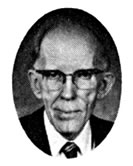 "A
printer and a minister."
That is how his long-standing
entry in the annual
Canadian Parliamentary
Guide described
him. It should have
included one more vocation
"and a parliamentarian."
"A
printer and a minister."
That is how his long-standing
entry in the annual
Canadian Parliamentary
Guide described
him. It should have
included one more vocation
"and a parliamentarian."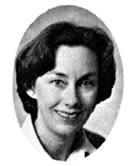 In
the politically correct
atmosphere of the first
decade of the Twenty-first
century it takes a little
courage to tackle the
place of women in Canada's
Parliament in the second
half of the Twentieth
century. An attempt
to tell it like it was,
especially when that
attempt is made from
the viewpoint of a male
observer, may not please
either camp, and the
word "camp"
is used advisedly.
In
the politically correct
atmosphere of the first
decade of the Twenty-first
century it takes a little
courage to tackle the
place of women in Canada's
Parliament in the second
half of the Twentieth
century. An attempt
to tell it like it was,
especially when that
attempt is made from
the viewpoint of a male
observer, may not please
either camp, and the
word "camp"
is used advisedly.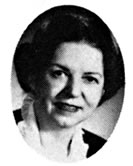 Another
lady from Toronto who
added lustre to the
Commons and had the
respect of members on
both sides was the Honourable
Aideen Nicholson
who, quite fittingly,
had as her electoral
area the riding of Trinity.
Another
lady from Toronto who
added lustre to the
Commons and had the
respect of members on
both sides was the Honourable
Aideen Nicholson
who, quite fittingly,
had as her electoral
area the riding of Trinity.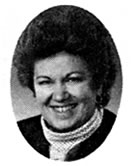 An
adornment to Québec
and Canada was the Honourable
Monique Bégin,
the hard working Member
for Laurier, who served
contemporaneously with
Aideen Nicholson as
a member of the Liberal
Party in the Commons.
An
adornment to Québec
and Canada was the Honourable
Monique Bégin,
the hard working Member
for Laurier, who served
contemporaneously with
Aideen Nicholson as
a member of the Liberal
Party in the Commons.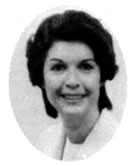 Canadians
watching televised Remembrance
Day services on November
11, 2002, saw a wonderfully
moving ceremony held
deep in the rain forest
of the Queen Charlotte
Islands. The site, far
removed from the familiar
setting of stone cenotaphs
and bronze statuary
in town and city centres,
lent its own somberness
to the celebration.
The forest quietness,
the wet ground, the
moss covered tree trunks,
even the broken remnants
of a crashed air force
training plane, added
to the solemnity of
the ceremony.
Canadians
watching televised Remembrance
Day services on November
11, 2002, saw a wonderfully
moving ceremony held
deep in the rain forest
of the Queen Charlotte
Islands. The site, far
removed from the familiar
setting of stone cenotaphs
and bronze statuary
in town and city centres,
lent its own somberness
to the celebration.
The forest quietness,
the wet ground, the
moss covered tree trunks,
even the broken remnants
of a crashed air force
training plane, added
to the solemnity of
the ceremony.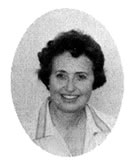 Another
lady from British Columbia,
bearing a completely
different personality,
who blazed her way into
the Commons was the
indomitable Simma
Holt.
Another
lady from British Columbia,
bearing a completely
different personality,
who blazed her way into
the Commons was the
indomitable Simma
Holt.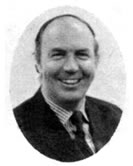 The
Honourable Donald
Stovel Macdonald,
long-time Member for
Toronto-Rosedale, and
life-long member of
the Liberal Party, once
made parliamentary history
and didn't know it.
The
Honourable Donald
Stovel Macdonald,
long-time Member for
Toronto-Rosedale, and
life-long member of
the Liberal Party, once
made parliamentary history
and didn't know it.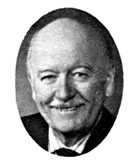 Two
more contrasting personalities
could hardly be imagined,
the quiet, earnest Alan
McKinnon, and the
loquacious Donald
Munro. They were
less than a year apart
in age, Munro having
been born in April 1916,
and McKinnon in January
1917.
Two
more contrasting personalities
could hardly be imagined,
the quiet, earnest Alan
McKinnon, and the
loquacious Donald
Munro. They were
less than a year apart
in age, Munro having
been born in April 1916,
and McKinnon in January
1917.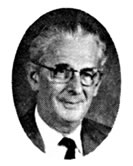 Donald
Munro, the consummate
diplomat, wove a skein
of well polished courtesy
into his dealings with
colleagues, but forever
is associated with one
flaw, not of character,
honour, or sincerity,
but simply that, despite
experience after experience
with Ottawa winters,
he never carried jumper
cables in his car.
Donald
Munro, the consummate
diplomat, wove a skein
of well polished courtesy
into his dealings with
colleagues, but forever
is associated with one
flaw, not of character,
honour, or sincerity,
but simply that, despite
experience after experience
with Ottawa winters,
he never carried jumper
cables in his car.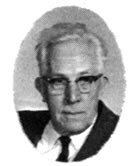 In
the section on Canadian
Prime Ministers will
be found the following
quotation on the subject
of "orators I have
known":
In
the section on Canadian
Prime Ministers will
be found the following
quotation on the subject
of "orators I have
known":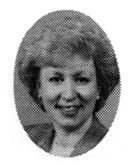 Kim
Campbell was Canada's
first female Prime Minister.
I vividly recall her
maiden speech in the
House of Common. Elsewhere
I have written that
elected representatives
come in all shades and
sizes, from all walks
of life, all cultures,
and backgrounds. The
individual reporter
never knows what each
election may produce.
Maiden speeches in Parliament
may provide a clue.
Kim
Campbell was Canada's
first female Prime Minister.
I vividly recall her
maiden speech in the
House of Common. Elsewhere
I have written that
elected representatives
come in all shades and
sizes, from all walks
of life, all cultures,
and backgrounds. The
individual reporter
never knows what each
election may produce.
Maiden speeches in Parliament
may provide a clue.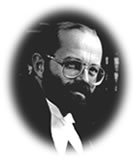 The
Honourable John William
Bosley was "new
age" Speaker. Born
in 1947, he was only
thirty-four when he
was elected Speaker
in 1984. He had experienced
the social revolution
that changed life in
Canada and other countries
through the 1960s on
into the early 1970s,
and he sought to bring
something of that era
into the stodgy atmosphere
of a House of Commons
so protective of its
mores and customs. He
resigned from the Speakership
in 1986, having held
the position for two
years less a month.
The
Honourable John William
Bosley was "new
age" Speaker. Born
in 1947, he was only
thirty-four when he
was elected Speaker
in 1984. He had experienced
the social revolution
that changed life in
Canada and other countries
through the 1960s on
into the early 1970s,
and he sought to bring
something of that era
into the stodgy atmosphere
of a House of Commons
so protective of its
mores and customs. He
resigned from the Speakership
in 1986, having held
the position for two
years less a month.